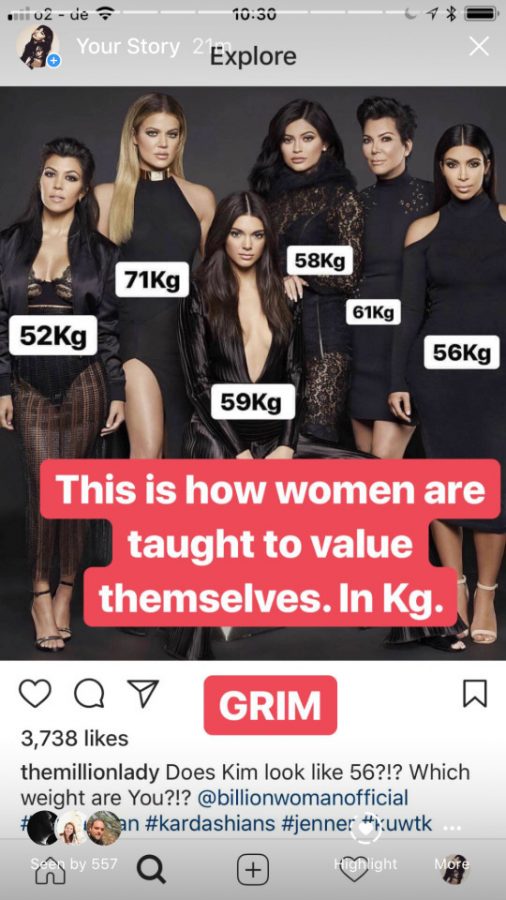Social media positively affects body image
This post that kick started Jameela Jamil’s famous “I Weigh…” campaign on Instagram. Credit: jameelajamil.co.uk
November 12, 2019
Adults everywhere have been puzzled by the exponential rise in teenage anxiety and depression over the past few years. Another noticeable trend has been the rise in teenage use of technology; so logically a general conclusion has been drawn that phones, and specifically the use of social media, have caused this drastic decline in youth’s self image.
While surely there are some negative aspects to constant exposure of people’s lives through online updates, platforms such as Instagram, Snapchat and Tumblr have also provided teens with spaces to expand creativity and broadcast body positive movements to combat the corporate media. Everyone has grown up being force-fed the exact body image that Hollywood and Disney Channel wanted to be acceptable, but social media allows the user to be in control, and has brought large scale promotion of all sorts of diversity and images of beautiful bodies that don’t fit the usual televised mold.
In a survey of 50 Roswell students, 80% voted saying that social media has made them feel empowered about their body, and 71.4% voted saying that they have seen body positive movements with significant followings. Of that 71.4%, the most commonly mentioned movements were Jameela Jamil’s “I Weigh” campaign and the Stop the Photoshop movement, which features images of acne, stretch marks, etc. overlayed with phrases such as “un-retouched” or “stop the photoshop.”
Without social networking sites, teens may not ever have seen humans who look like them in the spotlight. Even people of color and disabled people have been given recognition and validation through the influx of body positive posts and campaigns flooding the media.
Exposure to different body types not only teaches everyone that they are beautiful, but also gets teens used to celebrating difference, which is extremely necessary.
If you want to read the opposing argument, click here


